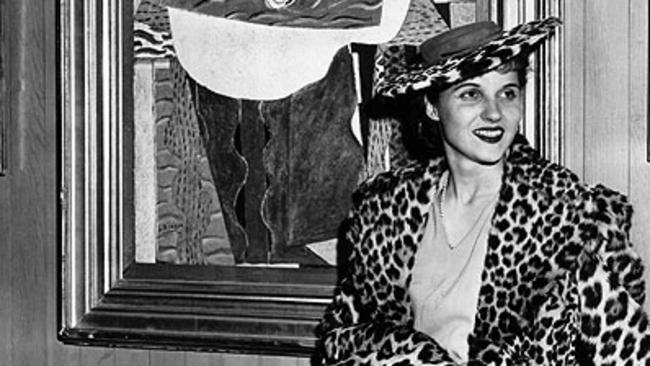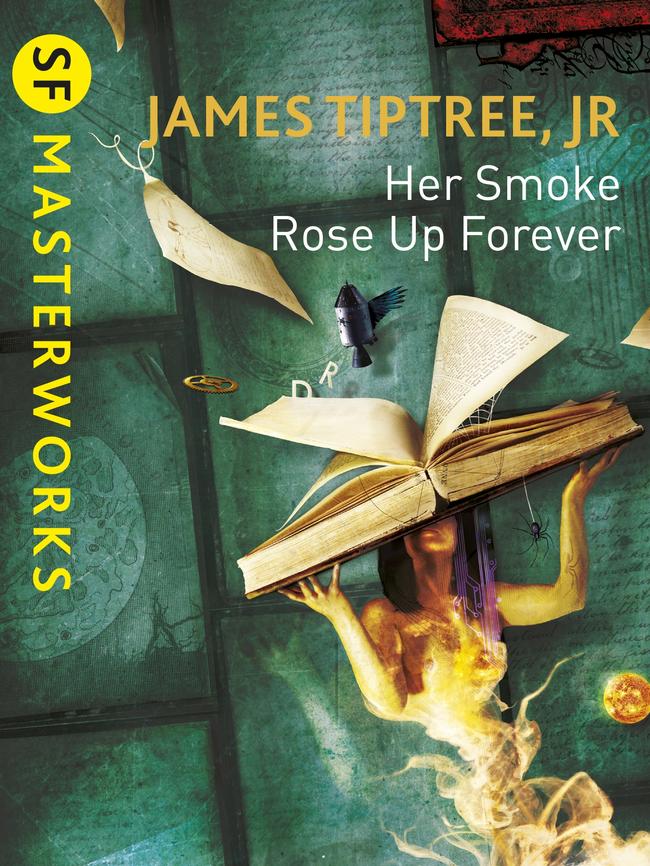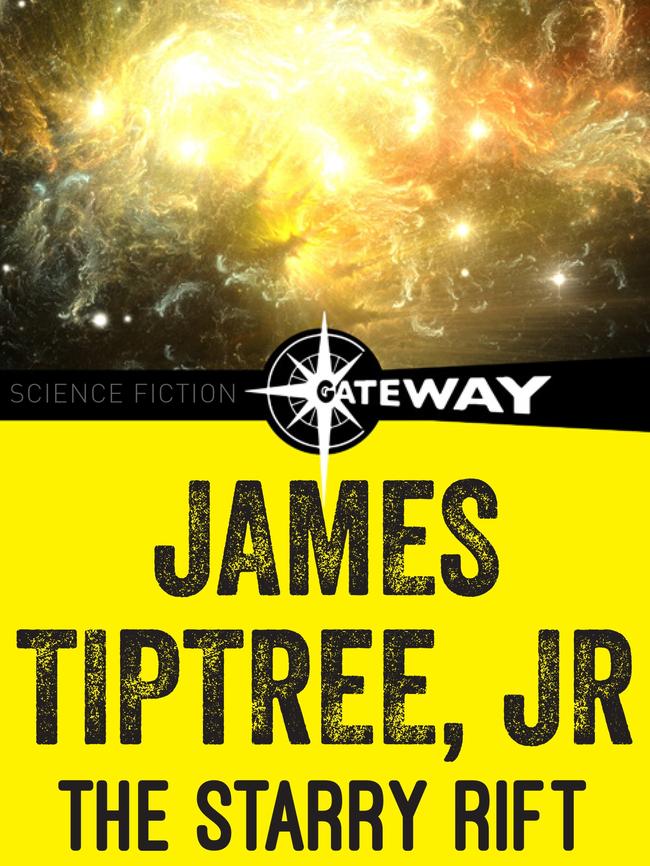Trauma came out of Africa for sci-fi queen Alice Sheldon
The origin of her literary pseudonym was likely the only sweet aspect to the life of sci-fi author Alice Sheldon, born 100 years ago today.

Today in History
Don't miss out on the headlines from Today in History. Followed categories will be added to My News.
The origin of her literary pseudonym was likely the only sweet aspect to sci-fi author Alice Sheldon’s life.
As James Tiptree Jr, with Tiptree appropriated from a marmalade jam brand and Jr added at the suggestion of her second husband, Sheldon challenged gender stereotypes in dozens of short stories and novellas published from 1967.
Born 100 years ago, on August 24, 1915, in Hyde Park, a lakeside neighbourhood near the University of Chicago, Sheldon enjoyed a privileged though lonely upbringing as the only child of naturalist, lawyer and property developer Herbert Bradley and socialite-author Mary Hastings Bradley.
TROUBLE IN AFRICA
At six, Sheldon was recorded as “the First White Child Ever Seen by Pigmy Tribes” on her first visit to the Belgian Congo, in 1921, with her parents and American Museum of Natural History biologist Carl Akeley, to research mountain gorillas.
Returning to Africa in 1923, Sheldon saw natives crucified on wooden posts, covered with flies and ants. On the family’s final visit she was 15 and a student at a Swiss boarding school, where at night she walked along railway tracks hoping to be hit by a train.
Abandoned to die in the desert by Belgian Congo officials because, Sheldon later suspected, the Bradleys knew too much about Belgian prison camps for natives, Africa traumatised her for life. Beset by depression, possibly caused by bipolar disorder, Sheldon later revealed she found her vulnerability and need for protection in Africa excruciating. She felt powerless, frustrated, and resentful that she was never allowed to fire a gun.
Her mother recorded the trips in two picture books, Alice In Jungleland and Alice In Elephantland, recounting that when fictional Alice asked about slavery, her mother explained: “It was too big a problem for a six-year-old to worry over, so Alice’s mother soon started her talking of something else”.


THE RUNAWAY BRIDE
Seated to Sheldon’s left at her debutante party on Christmas Eve, 1934, was poet William Davey, 21, son of Santa Fe painter Randall Davey and stepson of a Chicago businessman.
Three days later they eloped, fleeing 75km north to Waukegan where they married and argued loudly at a tourist hotel.
She turned to art during a stormy six-year marriage that included a botched abortion, and divorced in 1941.
Joining the Women’s Army Corps in 1942, she was recruited into air force photointelligence, studying aerial reconnaissance photographs for enemy installations and activity. Promoted to major, she met her second husband, army colonel Huntington “Ting” Sheldon, over a chess game in Paris in 1945, when she was assigned to his project.
Returning to the US, they ran a chicken hatchery in New Jersey in 1946 when Sheldon, as Alice Bradley, had a short-story, The Lucky Ones, published in New Yorker magazine. In 1952 they moved to Washington to work for the CIA, where Ting attended National Security Council meetings with the president.
Sheldon studied clinical psychology, dabbling in fiction as she studied the effect of novelty on lab rats to complete a doctorate in 1967.
SERIOUS SCI-FI
Fearing she would never be taken seriously as a research scientist if colleagues knew she wrote science fiction, Sheldon adopted the name James Tiptree, Jr. “A male name seemed like good camouflage,” she explained. “I felt that a man would slip by less observed. I’ve had too many experiences in my life of being the first woman in some damned occupation.”
Tiptree’s first published story, in March 1968, was Birth Of A Salesman. She also wrote as Raccoona Sheldon. Critics often referred to Tiptree as an unusually macho male, as well as an unusually feminist science fiction writer, for a male, especially in The Women Men Don’t See (1973).
The story of a mother and daughter who survive an air crash is narrated by chauvinistic Don Fenton, who notes, “The women are now in shorts, neat but definitely not sexy ... something is irritating me. The damn women haven’t complained once, you understand. Not a peep, not a quaver.”
In Houston, Houston, Do You Read (1976), a society of female clones deals with three time-travelling male astronauts. One clone comments to a visiting male: “As I understand it, what you protected people from was largely other males, wasn’t it?”
Tiptree’s identity intrigued readers until Sheldon was exposed when she mentioned her mother’s death to a fan in 1976. Sheldon felt her exposure cost the freedom to experiment with fiction.
As a heavy smoker she also suffered heart disease, while her husband was blind and bedridden, with dementia.
On May 19, 1987, Sheldon shot her husband in his sleep, then herself. The couple was found dead, hand-in-hand, in bed inside their Virginia home.
Originally published as Trauma came out of Africa for sci-fi queen Alice Sheldon


